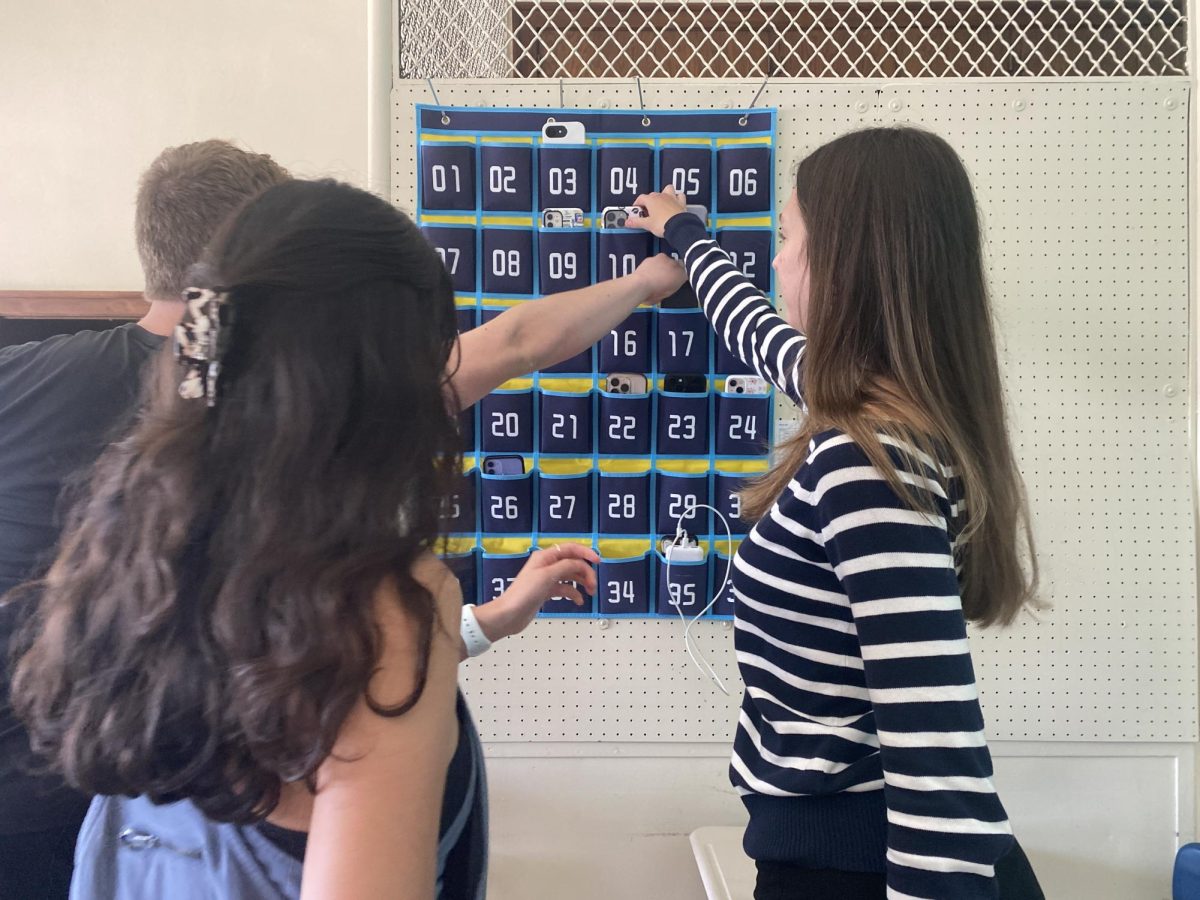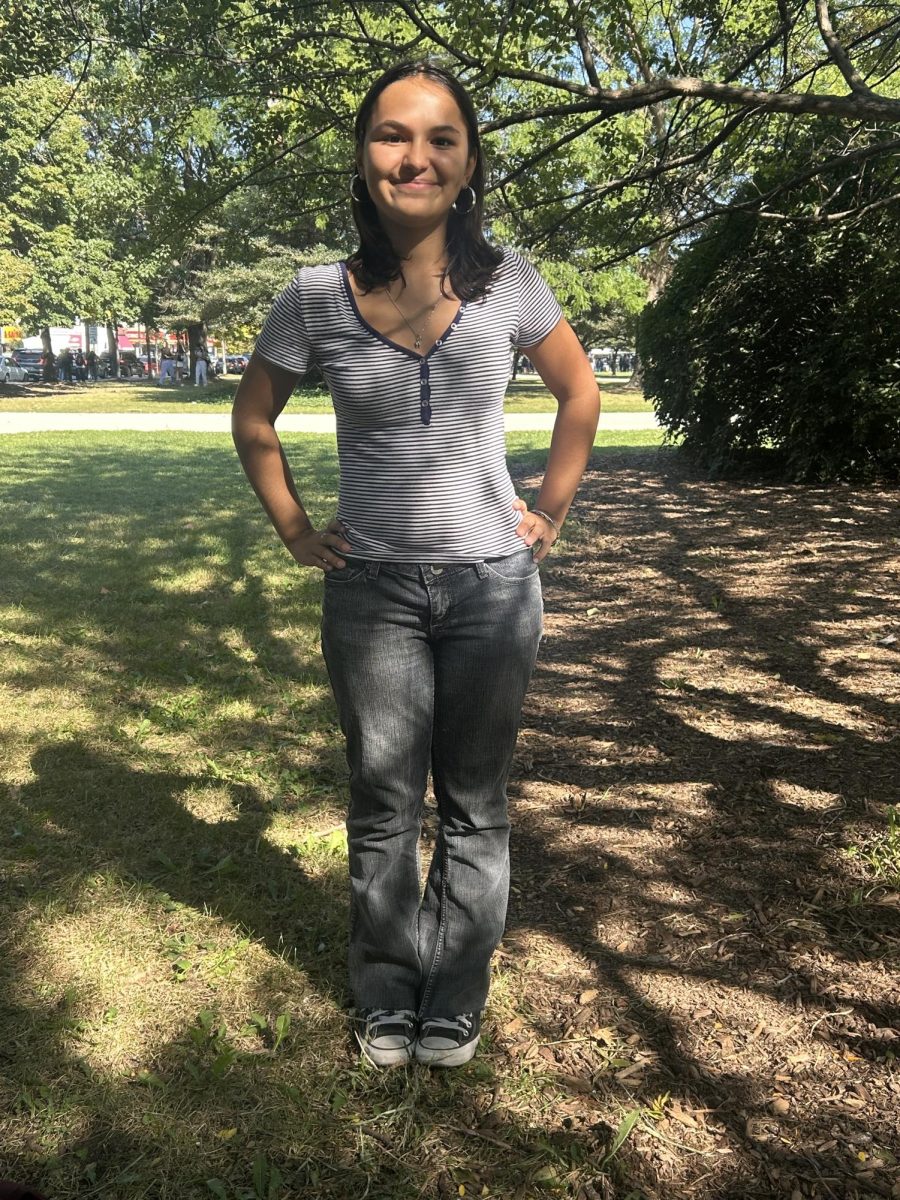By Mary Presley
“I was in her room at the hospital about to grab the laptop to get on Facebook, but something told me not to. My grandmother and I stood beside my mom as her breathing continued to get slower and slower. It was taking a long time for my mom to breathe but when she finally did I was relieved. I knew it was her last breath. I kissed her on the check and said ‘I love you Mama,’” said Ivelisse Negron, Div. 281.
Diagnosed with breast cancer in 2007, Negron’s mother was told in August of 2009 she had one year to live. Sadly she did not make it to the end of that year, and passed away in December of 2009.
Many students at Lane have experienced the pain caused by an absent parent whether from death, illness, or separation. These absences have left a painful lasting impression on the lives of these students, yet they have persevered and grown stronger because of them.
“I’m still grieving over the death of my mother, but I try to stay positive. It never gets easy, but you get stronger,” Negron said.
Grief is a natural reaction to death and other loss. Helping teens accept the reality of the situation allows them to grieve more and move on in life.
To help her grieve, Negron depended on the support of her family and friends.
“My family and I were there to talk to and be there for each other. We were okay with [her death] because we knew God wanted it to be that way,” Negron said.
Grieving is a different experience for each person.
“When I’m in front of people I do not like to cry, but when I’m alone I will let it all out,” Negron said. “My mom wouldn’t have wanted me walking around depressed, crying, and having people pity me. That’s not what I would have wanted either.”
Her dad preferred to mourn privately as well. He did not cry in front of Negron. Instead he wanted to go to Puerto Rico to be close with his brothers.
Her brother also put on a stoic face.
“I do not have a problem talking about [my mother’s death], but my brother acts as if he doesn’t want it to be known. He hides his feelings. I didn’t go back to school for a week after my mom died, but he went back a couple days later,” Negron said.
Grieving does not last forever, but unexpected things can trigger old memories. For Negron, things such as smells, sounds, physical sensations, or even events bring flashback memories of her mother, which stimulate old emotions.
“I just got my braces off and I wanted my mom to be there with me because she was there when I first got them. I still wish she was here,” Negron said.
In remembrance of her mom, Negron’s friends and family decorated a white christmas tree with pink ribbons symbolizing Negron’s mother’s struggle with breast cancer.
Feelings of loss also result for students whose parents split up. According to the Women’s and Children’s health network, a family breaking up is like a death.
“It makes me sad that my parents are not together, but everything happens for a reason,” said Victoria Gruenewald, Div. 265.
When Gruenewald was only four years old, her mom left her dad because she discovered he was homosexual. By the power of the state, Gruenewald’s dad received full custody of her and her sister because her mom suffered from multiple sclerosis, an autoimmune disease that affects the brain and spinal cord. Now Gruenewald’s mom has remarried and lives in Pennsylvania where her husband’s family lives.
When a serious illness strikes a parent it is always a confusing matter for children. For teens that confusion can be compounded by a desire to help.
“My mom has gotten really sick. She is in a wheel chair and it is hard for her to do things normal people do,” said Gruenewald. “This summer I’m going to move to Pennsylvania and go to college there so I can better help take care of her.”
Growing up having a homosexual dad and no mother in the house, Gruenewald encountered many obstacles.
“I got teased in elementary school because my dad was gay,” Gruenewald said. “I did not understand why they were making fun of me. It is not like I was gay. They were just making fun of someone I loved. I didn’t have a problem with my dad being gay. I just wanted a normal family.”
While a parent’s illness is an enormous burden on all members of the family, it can weigh heaviest on children who depend on a parent for their physical survival and emotional well-being.
Even though Gruenewald’s happiness for her parents comes from their happiness being apart, Gruenewald’s older sister still has not fully come to terms with her mom leaving them.
“I do not remember my mom and dad actually being together. My sister, who was eight at the time of the split had the experience of being with my mom growing up, so it took her a long time to get used to her not being here anymore. My sister still has not forgiven my mom fully,” Gruenewald said.
Most students suffer a broken bond with their absent parent, but for others the bond has never been there.
The parents of Zumiya Gomez, Div. 251, have been separated since she was a baby. The three words she chose off the top of her head to describe her father were “drunk, tall and cruel.”
“I feel like my dad doesn’t really know me, so I can’t say he loves me,” said Gomez, who sees her dad three times a year.
Due to her dad’s heavy alcohol use, Gomez’s mother stopped trusting Gomez’s father. She does not know if Gomez will be safe when visiting her father, and worries until she returns.
Growing up without her father around much, Gomez never had a chance to enjoy father and daughter dances, which always made her feel left out.
“I used to find excuses for my dad as to why he lied to me, but as I got older it made me sad,” Gomez said. “I felt like he didn’t care about me.”
The absence of her father caused even bigger problems in Gomez’s life which eventually led her to therapy.
“I went to therapy because of other stuff but not having a father made things worse,”Gomez said. “I blamed him for almost everything.”
Gomez’s issues with her father started to create noticeable problems in her dating life.
“If my father couldn’t be there for me, why should I trust a guy to be there for me?” Gomez said. “When a guy lies to me I can tell because my father use to always lie to me when I was little.”
Even though Gomez faced many challenges because of the emotional and physical absence of her dad, she has learned from her mom to be more independent.
Adolescence alone can be a difficult time for teens, but having to grieve over an absent loved one can add complications to the teen years.
In situations of separated parents, teenagers often take on a lot of extra responsibility in their households.
Jennifer Diaz, Div. 577, has many responsibilities because her parents are separated. She has not seen her mom in a year as her mom moved to Texas in search of a better job.
“In the mornings I have to wake my little sister up, so I can do her hair and get her dressed. I take her to Communion, and pick her up from soccer practice,” Diaz said. “Sometimes it is a lot of pressure because I have school, homework, chores, and then I have to watch everything I do because my sister, who is nine, follows in my footsteps. I have to help cook because my dad is not that good at cooking, but my 14-year-old brother also helps out a lot.”
Complicating the hardships of growing up with an absent parent can occur when the child is embarrassed or ashamed of the absent parent.
An anonymous student has a father who has been in and out of jail, and the student’s life, since he was seven years old.
“He is not in my life anymore and I do not miss him because of the reason he is in jail. When he was not in jail, he still was not there for me and my mom,” said the student.
Based on these experiences, the student does not believe a boy needs a father in his life if he has other family members that can be father figures instead.
“My uncles have always been there for me since I was a kid,” he said.
Though he is quick to say he does not need his father, the student admits that things were financially easier when his dad was around.
“The only one working is my mom and she has to support four children. When my dad was around it was better than it is now. We get by, but it is a struggle,” he said.
Another student who wishes to remain anonymous said her parents were never married. They went their separate ways when her father was not able to be there for her mom when she got pregnant. Never really seeing her parents together seems to have made it easier in a way.
“It does not bother me that my parents are not together. It has been so long that I’m kind of numb about the whole situation. My parents being together is not something I wish for,” she said.
She also says that she sees her father’s money more than she sees him.
Having a parent taken away due to death, divorce, or incarceration can make a child vulnerable to grief, emotional stress, withdrawal, and discontentment. Given time and support, these children can find the strength to push past such hardships, even if there is only one parent available to lean on for support.





